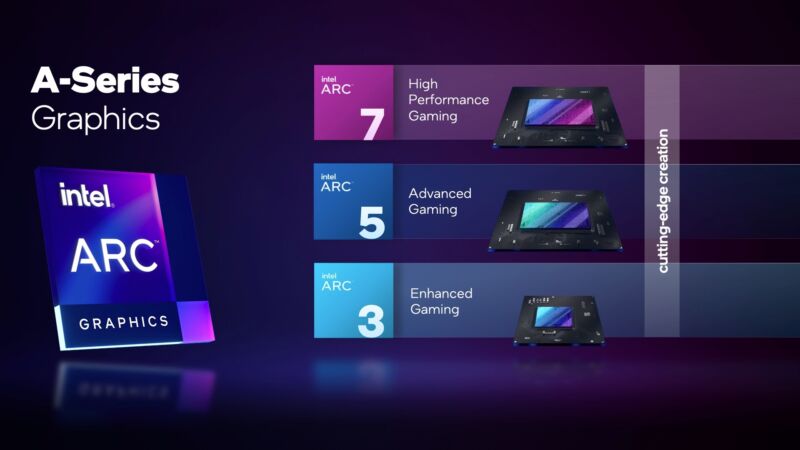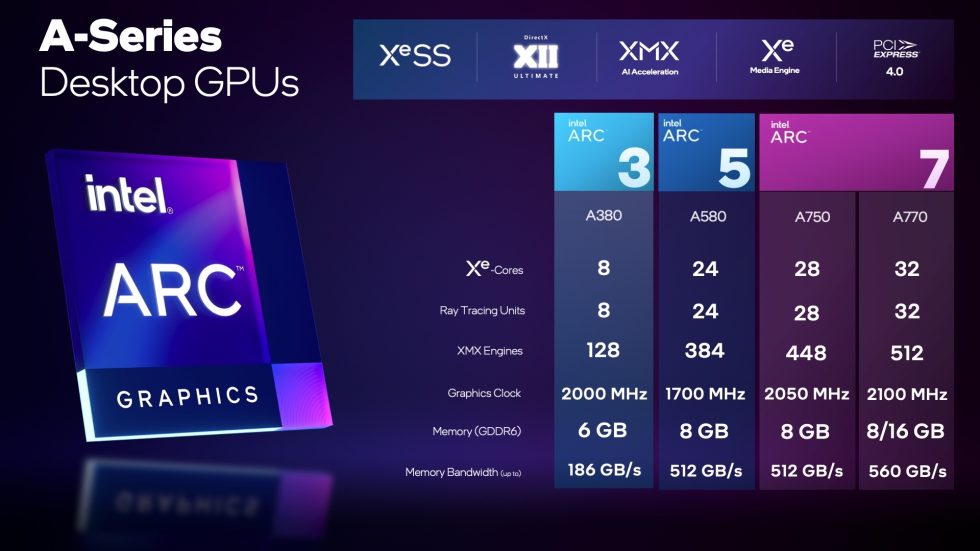
Enlarge / Intel's GPU performance tiers. The gap between 3 and 5 is much larger than the gap between 5 and 7. (credit: Intel)
Intel’s slow, steady drip of information about its upcoming Arc GPUs continued last week when the company released the final specs for its four A-series desktop graphics cards. As with the laptop GPUs the company announced earlier this year, the desktop Arc cards are split between the entry-level Arc 3, midrange Arc 5, and high-end Arc 7 tiers.
The only Arc GPU that has been extensively vetted by independent testers is the entry-level A380, which is also the only one that has had any kind of official launch in the US (this back-ordered $140 ASRock Challenger model listed on Newegg, not counting more expensive cards imported from China). It's by far the weakest GPU in the lineup, with just eight of Intel's Xe cores and ray tracing units and 6GB of GDDR6 memory on a 96-bit memory bus. Reviews usually show the A380 trading blows with older and budget-focused GPUs like Nvidia's GTX 1650 or AMD's RX 6400, depending on the game.

The Arc 5 and Arc 7 cards are all based on the same die, with more GPU cores shut off for the lower-end versions. (credit: Intel)
The other three GPUs are all a lot more similar. The A580, A750, and A770 have 24, 28, and 32 Xe cores, respectively, all increasing in clock speed as you climb upwards. But they all share a 256-bit memory bus and 8GB of GDDR6 RAM (with a 16GB option available for the A770). Intel showed off its own "Limited Edition" first-party versions of the A770 and A750; they share the same basic board and fan design and 225 W board power, but the A770 has built-in LEDs, and the A750 doesn't. Intel is presumably leaving the lower-end A580 and A380 cards to its board partners, rather than making its own versions.
Read 5 remaining paragraphs | Comments
from Tech – Ars Technica https://ift.tt/FLmozqH
No comments:
Post a Comment